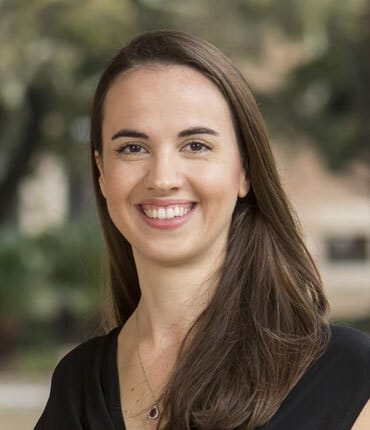- AIPressRoom
- Posts
- An information scientist requires warning in trusting AI discoveries
An information scientist requires warning in trusting AI discoveries
WASHINGTON — We stay in a golden age of scientific knowledge, with bigger stockpiles of genetic info, medical photographs and astronomical observations than ever earlier than. Synthetic intelligence can pore over these troves to uncover potential new scientific discoveries a lot faster than individuals ever may. However we must always not blindly belief AI’s scientific insights, argues knowledge scientist Genevera Allen, till these laptop applications can higher gauge how sure they’re in their very own outcomes.
AI techniques that use machine studying — applications that be taught what to do by finding out knowledge slightly than following specific directions — may be entrusted with some choices, says Allen, of Rice College in Houston. Particularly, AI is dependable for making choices in areas the place people can simply verify their work, like counting craters on the moon or predicting earthquake aftershocks (SN: 12/22/18, p. 25).
However extra exploratory algorithms that poke round giant datasets to establish beforehand unknown patterns or relationships between varied options “are very onerous to confirm,” Allen mentioned February 15 at a information convention on the annual assembly of the American Affiliation for the Development of Science. Deferring judgment to such autonomous, data-probing techniques could result in defective conclusions, she warned.

SELF-CONSCIOUS SYSTEMS Genevera Allen (pictured) and her colleagues are devising new uncertainty-measuring schemes to assist AI applications estimate the accuracy and reproducibility of their discoveries. Tommy LaVergne/Rice College
Take precision drugs, the place researchers typically purpose to seek out teams of sufferers which can be genetically related to assist tailor therapies. AI applications that sift by means of genetic knowledge have efficiently recognized affected person teams for some illnesses, like breast most cancers. But it surely hasn’t labored as properly for a lot of different situations, like colorectal most cancers. Algorithms analyzing completely different datasets have clustered collectively completely different, conflicting affected person classifications. That leaves scientists to marvel which, if any, AI to belief.
These contradictions come up as a result of data-mining algorithms are designed to comply with a programmer’s actual directions with no room for indecision, Allen defined. “Should you inform a clustering algorithm, ‘Discover teams in my dataset,’ it comes again and it says, ‘I discovered some teams.’ ” Inform it to seek out three teams, and it finds three. Request 4, and it will provide you with 4.
What AI ought to actually do, Allen mentioned, is report one thing like, “I actually assume that these teams of sufferers are actually, actually grouped equally … however these others over right here, I’m much less sure about.”
Subscribe to Science Information
Get nice science journalism, from probably the most trusted supply, delivered to the doorstep.
Scientists aren’t any strangers to coping with uncertainty. However conventional uncertainty-measuring methods are designed for circumstances the place a scientist has analyzed knowledge that was particularly collected to judge a predetermined speculation. That’s not how data-mining AI applications usually work. These techniques haven’t any guiding hypotheses, they usually muddle by means of large datasets which can be usually collected for no single function. Researchers like Allen, nonetheless, are designing protocols to assist next-generation AI estimate the accuracy and reproducibility of its discoveries.
One among these methods depends on the concept that if an AI program has made an actual discovery — like figuring out a set of clinically significant affected person teams — then that discovering ought to maintain up in different datasets. It’s usually too costly for scientists to gather model new, big datasets to check what an AI has discovered. However, Allen mentioned, “we are able to take the present knowledge that now we have, and we are able to perturb the information and randomize the information in a means that mimics [collecting] future datasets.” If the AI finds the identical kinds of affected person classifications time and again, for instance, “you in all probability have a reasonably good discovery in your palms,” she mentioned.
The post An information scientist requires warning in trusting AI discoveries appeared first on AIPressRoom.